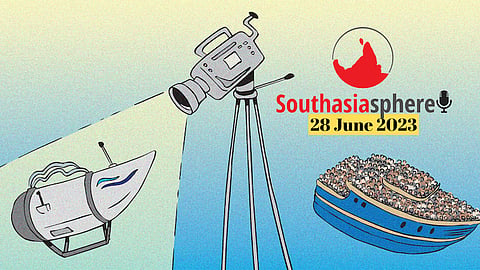Modi’s US visit, Pakistani migrant deaths in the Mediterranean, Myanmar’s flower strike and more
Southasiasphere is our roundup of news events and analysis of regional affairs, now out every two weeks. If you are a member, you will automatically receive links to new episodes in your inbox. If you are not yet a member, you can still get episode links for free by signing up here.
In this episode, we talk about Indian Prime Minister Narendra Modi's recent visit to the US, and the sinking of a trawler off the coast of Greece with almost 300 Pakistani refugees onboard.
For "Around Southasia in 5 minutes", we talk about communal violence in North and Northeast India, the encroachment of land in Sri Lanka for the building of Buddhist temples, progress on amendments to Nepal's citizenship laws, Myanmar's recent flower strike, the resurgence of Jamaat-e-Islami and the call for an ICC probe into war crimes allegations in Afghanistan.

